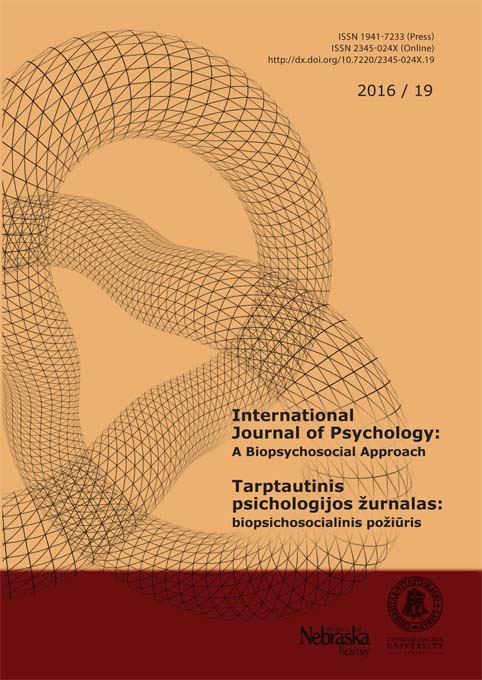Clinical Decision-Making of Anesthesiology Residents in Emergency Medical Care
Clinical Decision-Making of Anesthesiology Residents in Emergency Medical Care
Author(s): Tomas Maceina, Andrius Macas, Jevgenija Olševska, Pranas PuidokasSubject(s): Philosophy, Ethics / Practical Philosophy, Cognitive Psychology, Clinical psychology
Published by: Vytauto Didžiojo Universitetas
Keywords: Clinical decision-making; Heuristics; Cognitive errors
Summary/Abstract: Background. The purpose of current work is to clarify characteristics of anesthesiologists’ use of heuristics in emergency medical care. Two separate studies were carried out to evaluate the characteristics of anesthesiologists’ use of heuristics: (a) according to gained experience; (b) and under stressful conditions. Methods. First (longitudinal design) study was comprised of two phases 10-11 months apart. In both phases, participants solved three vignettes that required the provision of emergency medical care. In the second study, participants solved three medical vignettes under stressful conditions (i.e. under the influence of the cold pressor test). Physiological data – participants’ heart rate – was registered using finger plethysmograph before and after the cold pressor test. The adequacy of decisions were evaluated independently by two experts in anesthesiology. Results and conclusions. Results of quantitative content analysis of the first longitudinal design study showed a decrease in the use of availability and an increase in anchoring and adjustment of heuristic as anesthesiology residents become more experienced. Results of both studies indicate that 32-38% of all anesthesiology residents’ thoughts are heuristic in nature and 3-11% of all thoughts are cognitive errors.
Journal: Tarptautinis psichologijos žurnalas: biopsichosocialinis požiūris
- Issue Year: 2017
- Issue No: 19
- Page Range: 9-34
- Page Count: 26
- Language: English

